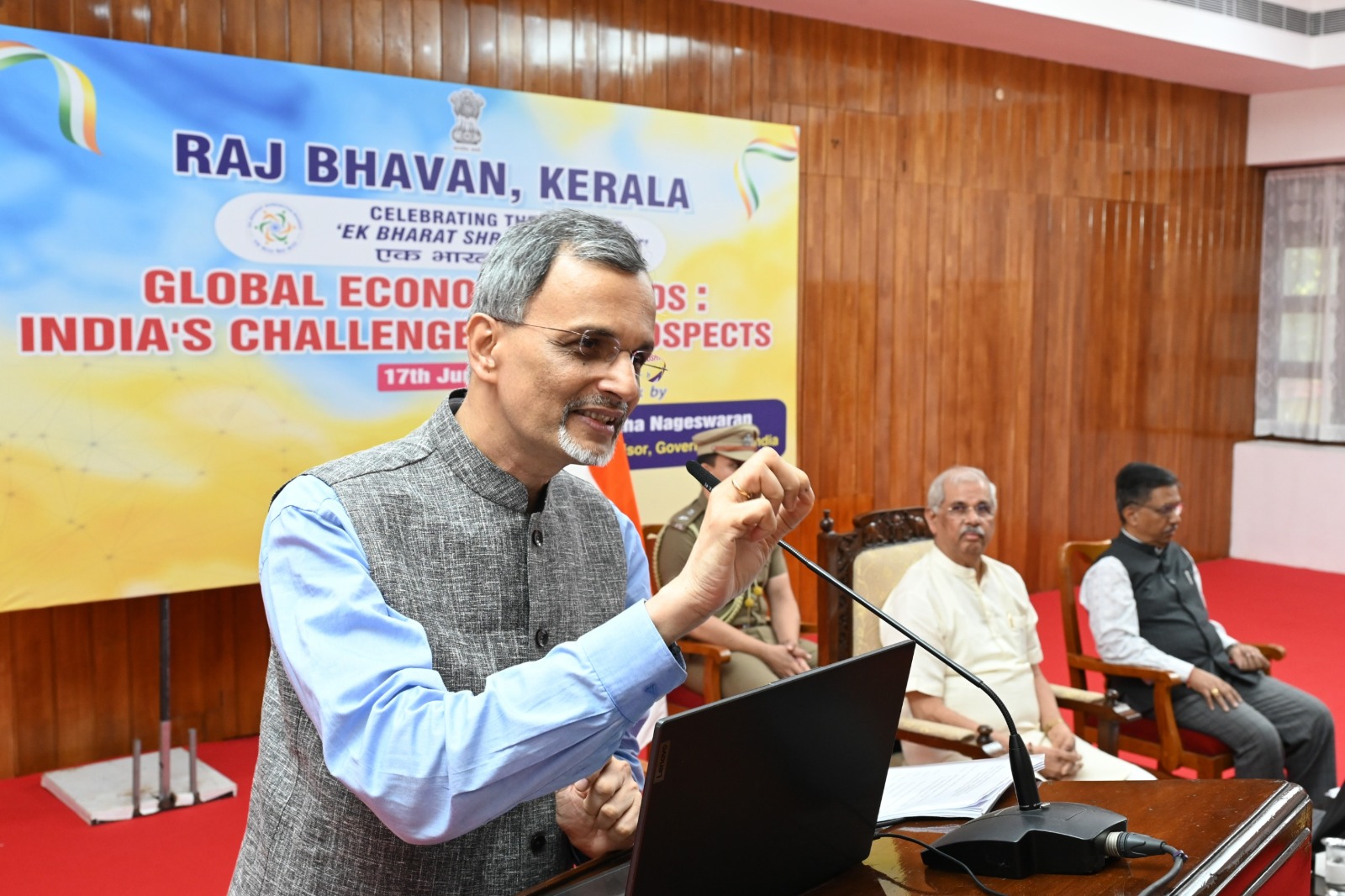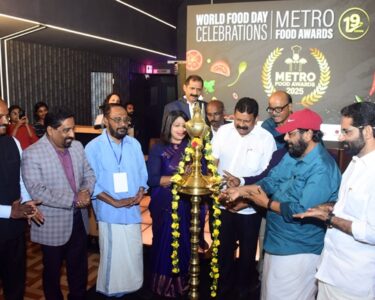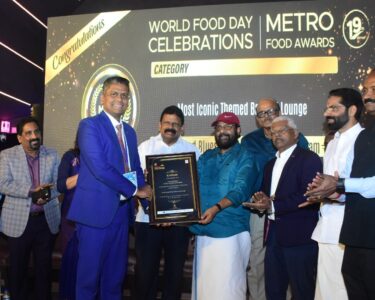Dr. V. Anantha Nageswaran, Chief Economic Advisor to the Government of India, delivered an insightful lecture at Raj Bhavan, Thiruvananthapuram, on the theme “Emerging Global Trends and India’s Challenges and Prospects.” The event, hosted by the Governor of Kerala, Shri Rajendra Vishwanath Arlekar, drew a distinguished gathering of policymakers, economists, and business leaders.
In his address, Dr. Nageswaran highlighted the urgent need for cooperative efforts between the central and state governments to tackle India’s structural economic hurdles. He noted that the global era of easy capital and trade-driven growth is fading, and India must now concentrate on improving internal regulatory systems to attract sustainable investments.
He stressed that achieving the goal of becoming a developed economy by 2047 hinges on comprehensive reforms in infrastructure, skill development, industrial regulation, and labour policies. However, he warned that unless states actively address inefficiencies—especially in land use, labour frameworks, and utility pricing—the country could miss its opportunity for industrial transformation.
A key concern raised by Dr. Nageswaran was the rising consumption of ultra-processed foods in India. He cautioned that this trend threatens the health of the younger generation, undermining the country’s demographic dividend and the strength of its future workforce.
He pointed to outdated regulations as serious bottlenecks. In Kerala, for example, industrial units reportedly lose up to 75% of usable land due to rigid setback and coverage norms. In rural areas, requirements such as 10-metre-wide access roads often disqualify potential sites, even in traditionally industrial states like Punjab and Haryana. He urged rationalisation of zoning and planning laws to unleash the potential of rural industries.
Dr. Nageswaran also drew attention to gender-based restrictions in industrial employment in Kerala. He highlighted that women are still barred from working in 16 industrial processes, including areas like semiconductor electroplating. Citing the Supreme Court’s Babita Puniya judgment, he urged Kerala to align with the national OSHWC Code, which opposes gender-based job exclusions.
On the MSME sector, he likened its potential to Germany’s Mittelstand and called for urgent reforms in regulatory processes, payment mechanisms, and integration into value chains. He praised the Production Linked Incentive (PLI) scheme as a successful model in attracting MSME involvement in manufacturing.
Addressing industrial power tariffs, he noted that Kerala’s rates are approximately 10% above supply costs due to cross-subsidisation, and suggested capping this at 5% to boost competitiveness. On compliance norms, he recommended adopting systems like Maharashtra’s perpetual fire safety NOCs with biannual reporting, as well as risk-based approvals and third-party verifications to reduce delays.
Dr. Nageswaran acknowledged India’s resilience amid global uncertainties, pointing to robust growth in infrastructure, digital payments, GST revenues, and EPFO enrolments. He reiterated that India’s $5 trillion economy target by 2027–28 remains achievable, but only through realistic, inclusive, and state-driven reforms.
On global trade dynamics, he spoke about the advantages India may gain due to shifting tariffs post-April 2 announcements, particularly in labour-intensive sectors like textiles and chemicals. He emphasized the need to view trade shifts not just from India’s perspective, but also in comparison to challenges faced by competing nations.
He also warned against the uncritical expansion of solar and wind energy due to grid instability caused by their intermittent nature. While supporting the renewable energy transition, he called for a balanced approach, noting the importance of coal and the strategic move to introduce small modular nuclear reactors and private sector participation in nuclear energy.
Dr. Nageswaran concluded by urging India to position itself as an indispensable part of global manufacturing, much like China over the past three decades. He said that while smaller countries like Vietnam and Mexico cannot match China’s scale, India can emerge as a reliable and competitive alternative—if it acts strategically.
Governor Rajendra Vishwanath Arlekar, in his remarks, affirmed that Raj Bhavan would now evolve into a “Lok Bhavan”—a space open to the people. He reflected on the shift from seclusion to inclusivity, stating that the institution must serve the broader public and become a more engaged part of civil society.
The session was widely appreciated for its depth and relevance, reinforcing the critical role of state-level policy reforms in shaping India’s economic trajectory.




